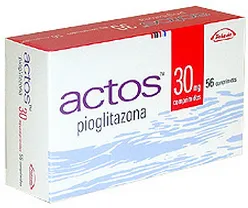The Pioglitazone diabetes medicine is associated with a higher risk of bladder cancer, as detected by a study published Wednesday by British Medical Journal.The findings suggest that the risk increases with the duration of treatment and dose.No increase in risk in a similar medication, rosiglitazone.
Pioglitazone and Rosiglitazone belong to a drug class called Tiazolidinewith pioglitazone compared to the placebo.
Since then, the association between the use of pioglitazone and bladder cancer has been a reason for controversy, with works informing of contradictory results.Therefore, a team of researchers based in Canada set out to determine whether the use of pioglitazone, compared to other antidiabetic drugs, is linked to a higher risk of bladder cancer in patients with type 2 diabetes.
To do this, they analyzed data of 145,806 patients from the United Kingdom Clinical Practice Database (CPRD), which were recently treated with diabetes medications between 2000 and 2013. Possibleinfluential factors, such as age, sex, diabetes, smoking and alcohol -related disorders.
Compared to the non-use of thiazolidiniona, the use of pioglitazone was associated with a higher general risk of 63 percent of bladder cancer (121 percent years-peak compared to 89 per 100,000 years-person), with increased risk with risk with risk with risk with risk with risk with risk with risk with riskThe duration of treatment and dose.In contrast, the use of Rosiglitazona was not related to more risk of bladder cancer in any analysis, which suggests the risk is specific to the drug and not of the type of effect.
These results were practically unchanged after additional evaluations.The authors underline that, in absolute terms, the risk of bladder cancer remains low but suggest that doctors and patients should be aware of this association in the evaluation of the global risks and benefits of this therapy.


